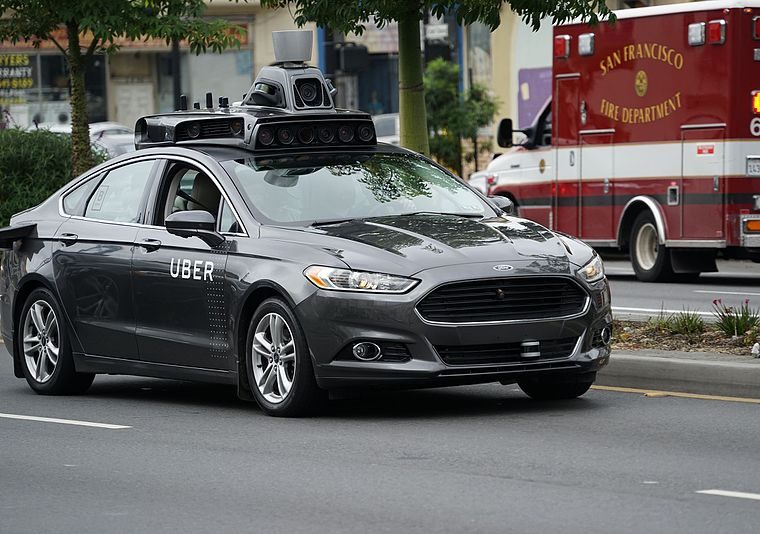 EMERGING TECH
EMERGING TECH
 EMERGING TECH
EMERGING TECH
 EMERGING TECH
EMERGING TECH
Developing self-driving autonomous vehicles is hard. In the late 2000s, multiple companies came on to the scene promising to develop technology that would negate the need for an actual driver and some expected by 2020 that self-driving cars would be a regular thing by now. They’re not.
While various companies have come and gone, two in particular stood out: Waymo LLC, owned by Alphabet Inc. and previously known as the Google self-driving car project, and the self-driving car unit at Uber Technologies Inc. The latter is no longer.
Uber today said it has sold its self-driving car unit, formally known as the Advanced Technologies Group, to Amazon.com Inc.-backed autonomous vehicle startup Aurora Innovation Inc. for a price reported to be $4 billion.
The deal, expected to close in the first quarter of 2021, is said to be an all-equity deal with Uber gaining at 26% stake in Aurora in return. CNBC reported that under the terms of the deal, Uber Chief Executive Officer Dara Khosrowshahi will join Aurora’s board and Uber will also invest $400 million into the company. Overall, Uber and ATG investors — Uber having partially spun off ATG in 2019 — will on the close of the deal own 40% of Aurora.
While not a household name in self-driving car development, Aurora is one of the more prominent players in the autonomous vehicle market, at least in terms of venture capital investment. After exiting stealth in 2018, the company welcomed Amazon along with Sequoia Capital, T. Rowe Price and a half-dozen other institutional investors in a $530 million round in February 2019. Hyundai Motor Co. and Baillie Gifford & Co. Ltd. joined as investors in June 2019.
Aurora is led by Chris Urmson, a former assistant professor at Carnegie Mellon University who led development on the Google self-driving car project. Aurora Chief Technology Officer Drew Bagnell was previously a lead engineer with Uber’s self-driving car group while Chief Product Officer Sterling Anderson worked at Tesla Inc. as the head of its Autopilot unit.
The sale is the end of an era for Uber, one that has never been boring. The idea of Uber developing autonomous vehicles from day one is that eventually at some point in the future the company could get rid of human drivers and offer fully autonomous, human-free vehicles instead, complete with the reduced cost of not having to pay drivers to pick up customers.
Uber ATG has gone places both good and bad, and although it never quite got to the level of Waymo, it came close in terms of technology. History will most likely remember it for its low points, however, such as when an Uber autonomous vehicle killed a pedestrian in Arizona in 2018. A subsequent investigation found that the accident was caused by a programming error.
The decision to exit its self-driving car unit may not be the only exit Uber is planning before the end of the year. The company reportedly is in talks to sell Uber Elevate, its air taxi business, which never came close to deployment. Uber ambitiously announced the service would launch in Melbourne, Australia, in June 2019, but 18 months later, it has not even tested it.
THANK YOU